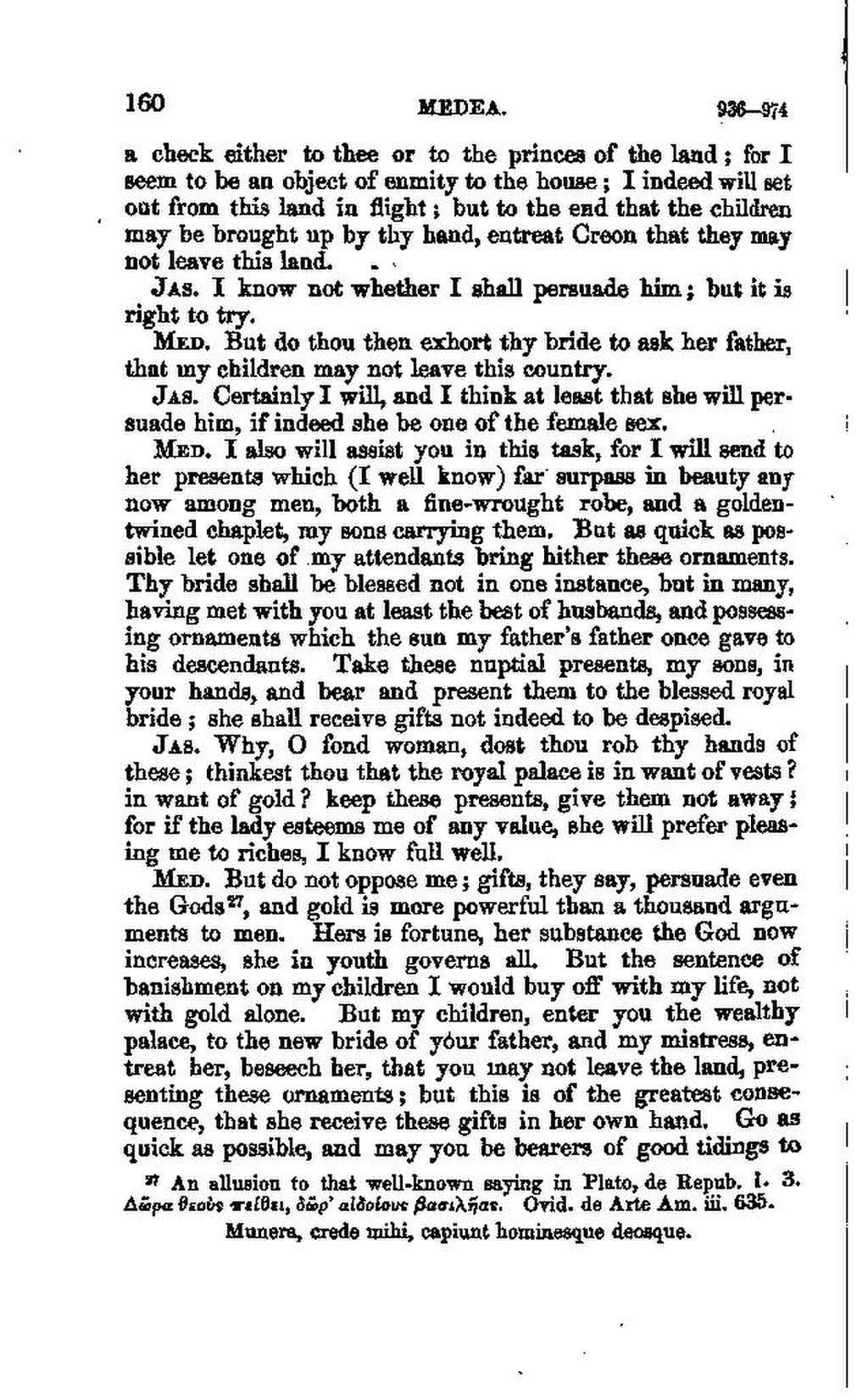160 MEDEA. 93–974 a check either to thee or to the princes of the land; for I seem to be an object of enmity to the house; I indeed will set out from this land in flight; but to the end that the children may be brought up by thy hand, entreat Croon that they may not leave this land. JAS. I know not whether I shall persuade him; but it is right to try. MED. But do thou then exhort thy bride to ask her father, that my children may not leave this country. Jas. Certainly I will , and I think at least that she will per- suade him, if indeed she be one of the female sex. MED. I also will assist you in this task, for I will send to her presents which (I well know) far surpass in beauty any now among men, both a fine-wrought robe, and a golden- twined chaplet, ray song carrying them. Bat as quick as pos- aible let one of my attendants bring hither these ornaments. Thy bride shall be blessed not in one instance, but in many, having met with you at least the best of husbands, and possess- ing ornaments which the sun my father's father once gave to his descendants. Take these nuptial presenta, my song, in your hands, and bear and present them to the blessed royal bride; she shall receive gifts not indeed to be despised. JAS. Wby, O fond woman, dost thou rob thy hands of these; thinkest thou that the royal palace is in want of vests? in want of gold ? keep these presents, give them not away for if the lady esteoms me of any value, she will prefer pleas- ing me to riches, I know full well. MED. But do not oppose me; gifts, they say, persuade even the Gods, and gold is more powerful than a thousand arga- ments to men. Here is fortune, her substance the God now increases, she in youth governs all. But the sentence of banishment on my children I would buy off with my life, not with gold alone. But my children, enter you the wealthy palace, to the new bride of your father, and my mistress, en- treat ber, beseech ber, that you inay not leave the land, pre- senting these ornaments; but this is of the greatest conse- quence, that she receive these gifts in her own hand. Go as quick as possible, and may you be bearers of good tidings to
- An allusion to that well-known saying in Plato, de Repub. i. 3.
Aapa teois relDxl, dop' aldolowe Haoinar. Ovid. de Arte Am. i. 635. Monere, crede mihi, capiunt hominesque deosque. 1 1 i I
